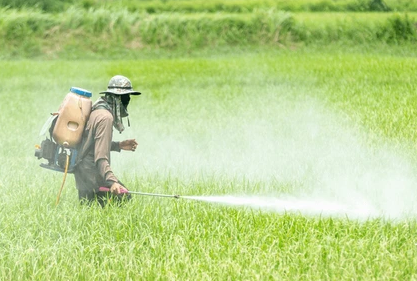
New Delhi: In a significant decision, countries across the globe on Saturday struck a major deal to eliminate the use of one of the most hazardous pesticides, Chlorpyrifos, with certain exemptions, under the Stockholm Convention at the ongoing meet in Geneva.
India, which opposed its complete elimination at this stage, will continue to use it for another five years as per its registered uses for 12 crops, including rice, wheat, gram, sugarcane, beans, cotton, mustard, brinjal, onion, apple, barley, and groundnut, to deal with certain pests and termites.
Over 40 countries, including all 27 European Union (EU) nations, the UK, and the US, have already banned the use of Chlorpyrifos on food crops. India, during the negotiation, pitched for exemptions, arguing the need for its use in certain crops in the absence of alternatives. The country, along with other nations, including Russia, Kenya, Zambia, and Costa Rica, also favoured exemptions for ensuring food security.
Though India and many countries will continue to use it for select exempted purposes in the cultivation of certain crops while dealing with pests, the decision will ultimately push the users to look for alternatives in the final goal of complete elimination of the use of Chlorpyrifos, a highly toxic organophosphate pesticide with harmful effects on health and the environment.
The decision was taken at the ongoing Conference of the Parties (COPs) to the Basel, Rotterdam, and Stockholm (BRS) Convention in Geneva, being held to galvanise global efforts to manage hazardous chemicals and waste in an environmentally sound manner.
Experts who have been tracking the development at the Convention welcome the listing of Chlorpyrifos in Annex A (meant for elimination) of the Convention but expressed their concerns at the long list of exemptions.
“The world can no longer turn a blind eye to the overwhelming scientific evidence on Chlorpyrifos. Its global elimination is a critical step toward safeguarding public health, environmental integrity, and the rights of future generations,” said Dileep Kumar of the Pesticide Action Network (PAN) India.
“We support a broad spectrum evaluation and speeding up the separation of highly hazardous chemicals for elimination. The survival of life, including biodiversity, is at stake. Also, national govts have to take up their own independent physico-chemical and ecotoxicological evaluation to propose such chemicals for elimination,” said Narasimha Reddy Donthi, a public policy expert.
The specific exemptions allowed under the decision include 18 crop-pest complexes (rice, maize, wheat, sugarcane, onion, peanut, barley, cabbage, chickpea, cotton, pineapple, and rapeseed, among others); control of leaf-cutting ants for agricultural use; control of locusts; control of ticks in cattle; and wood preservation against borers and termites in building foundations.